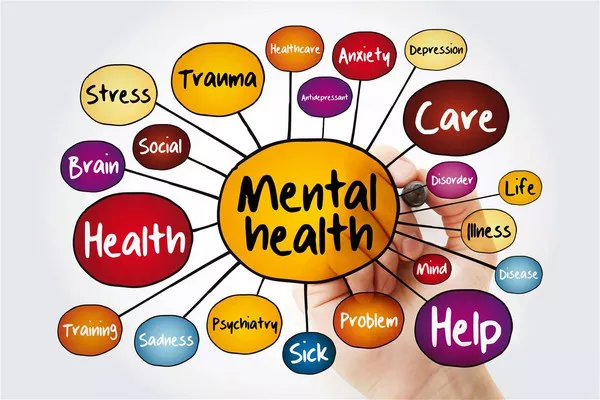Behavioral disorders in adults are a diverse group of mental health conditions that impact an individual’s thoughts, emotions, and actions, leading to significant challenges in daily life. These disorders can manifest in various ways, affecting relationships, work, and overall well-being. In this comprehensive article, we explore the different types of behavioral disorders in adults, their potential causes, common symptoms, and effective treatment approaches.
Types of Behavioral Disorders in Adults
Behavioral disorders in adults encompass a wide range of conditions. Some of the most common types include:
1. Attention-Deficit/Hyperactivity Disorder (ADHD): ADHD is characterized by persistent patterns of inattention, hyperactivity, and impulsivity. Adults with ADHD may have difficulty staying focused, managing time, and organizing tasks.
2. Oppositional Defiant Disorder (ODD): ODD is marked by defiance, hostility, and argumentative behavior. Adults with ODD may have difficulty controlling their anger and engaging in confrontational behavior.
3. Conduct Disorder: Conduct disorder involves persistent patterns of aggressive and antisocial behavior. Adults with conduct disorder may violate the rights of others, display aggression, and engage in destructive behaviors.
4. Substance Use Disorders: Substance use disorders involve the persistent use of drugs or alcohol despite negative consequences. This behavior can lead to addiction and various physical and psychological issues.
5. Disruptive Mood Dysregulation Disorder (DMDD): DMDD is characterized by severe temper outbursts and persistent irritability. Adults with DMDD may struggle to regulate their emotions and cope with stress.
6. Obsessive-Compulsive Disorder (OCD): OCD is characterized by unwanted, intrusive thoughts (obsessions) and repetitive behaviors (compulsions). Adults with OCD may engage in rituals to alleviate anxiety.
Causes of Behavioral Disorders in Adults
The development of behavioral disorders in adults is influenced by a combination of genetic, biological, environmental, and psychological factors. Some common causes include:
1. Genetic Factors: Certain behavioral disorders, such as ADHD and OCD, tend to run in families, suggesting a genetic predisposition to these conditions.
2. Brain Chemistry and Structure: Imbalances in neurotransmitters and abnormalities in brain structure can contribute to the development of behavioral disorders.
3. Environmental Stressors: Traumatic experiences, abuse, neglect, and other adverse childhood events can increase the risk of developing behavioral disorders in adulthood.
4. Substance Abuse: Chronic drug or alcohol use can alter brain chemistry and contribute to the development of behavioral disorders.
5. Mental Health History: Adults with a history of mental health issues, such as anxiety or depression, may be more susceptible to developing behavioral disorders.
6. Neurodevelopmental Factors: Disruptions in early brain development and neurodevelopmental disorders can also contribute to behavioral disorders in adulthood.
Common Symptoms of Behavioral Disorders in Adults
The symptoms of behavioral disorders in adults can vary widely depending on the specific condition. However, some common signs and behaviors include:
1. Impulsivity: Adults with behavioral disorders may act on impulses without considering the consequences of their actions.
2. Emotional Dysregulation: Difficulty managing emotions can lead to mood swings, irritability, and emotional outbursts.
3. Aggressive Behavior: Aggression, both verbal and physical, may be a prominent feature of certain behavioral disorders.
4. Social Difficulties: Adults with behavioral disorders may struggle to form and maintain relationships, leading to social isolation.
5. Difficulty with Authority: Resistance to authority figures and non-compliance with rules and regulations are common traits.
6. Risky Behavior: Engaging in risky or dangerous activities without regard for personal safety is also observed in some behavioral disorders.
Diagnosis and Assessment
Diagnosing behavioral disorders in adults requires a comprehensive assessment by qualified mental health professionals. This process may involve:
1. Clinical Interviews: In-depth interviews with the individual and their family to gather information about symptoms, history, and behavior patterns.
2. Psychological Testing: Various psychological tests and assessments may be administered to evaluate cognitive and emotional functioning.
3. Observation: Observing the individual’s behavior in different settings can provide valuable insights into their condition.
4. Medical Evaluation: A thorough medical examination can rule out any physical conditions that may be contributing to the behavioral issues.
5. Diagnostic Criteria: Diagnoses are based on specific criteria outlined in the Diagnostic and Statistical Manual of Mental Disorders (DSM-5) published by the American Psychiatric Association.
Treatment Approaches
The treatment of behavioral disorders in adults typically involves a combination of therapies tailored to individual needs. Some effective approaches include:
1. Psychotherapy: Individual, group, or family therapy can help individuals understand and manage their behaviors, emotions, and relationships.
2. Medication: In some cases, medication may be prescribed to manage specific symptoms, such as impulsivity or anxiety.
3. Cognitive-Behavioral Therapy (CBT): CBT is a widely used therapeutic approach that helps individuals identify and modify negative thought patterns and behaviors.
4. Dialectical Behavior Therapy (DBT): DBT is beneficial for individuals struggling with emotional dysregulation and helps build coping skills.
5. Parent Training: For adults with parenting challenges, parent training programs can improve parenting skills and reduce disruptive behaviors in children.
6. Support Groups: Support groups provide a safe environment for individuals to share experiences, learn coping strategies, and receive support from others facing similar challenges.
Conclusion
Behavioral disorders in adults encompass a diverse range of conditions that can significantly impact a person’s life. Recognizing the symptoms and seeking early assessment and treatment are essential for improving quality of life and achieving better outcomes. By understanding the causes, symptoms, and available treatment options, individuals with behavioral disorders can receive the support and guidance needed to manage their condition effectively and lead fulfilling lives. Professional guidance from qualified mental health practitioners plays a crucial role in developing personalized treatment plans to address the unique needs of each individual.


